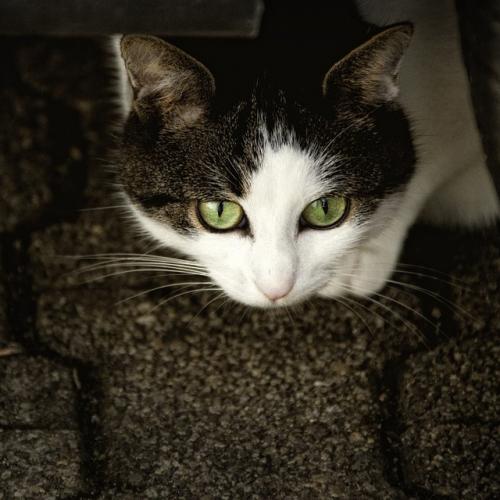
Why it is important to help your cat at fireworks time?
Back to overviewNot only can firework sounds be terrifying for your cat, but also the fear that they cause can lead to long term sound sensitivity and related behaviour and health issues.
What is Sound Sensitivity?
Every time that an animal experiences fear in connection with a particular stimulus (sight, sound or even smell) his or her fear of that stimulus and anything associated with it will increase.
To give this a human analogy:
Imagine you are on a plane and something frightening happens. If it is just a one off event, and your fear was not too great then the long term effects may not be too bad. But imagine that a series of frightening events happen. Then your fear is likely to increase to where even the slightest change in the engine sound, which you might not have even noticed before, will be enough to frighten you. In other words, you have become sensitised.
So every time that your cat is frightened by the sounds of fireworks his fear will increase to where even low volume firework sounds and everyday sounds similar to that made by fireworks can be enough to frighten him.
Related behavioural issues
Aggression:
A frightened cat may be aggressive to people for the following reasons:
· The cat associates the person or other animal with the frightening thing.
· The cat is being restrained and cannot escape from the frightening thing.
· Aggression, as a defensive reaction cannot be directed towards the frightening thing and so is redirected towards whatever or whoever happens to be nearby.
Over-grooming:
It is normal for a cat to groom itself when feeing anxious. But if the cat is anxious for a large part of the time, as many cats with sound-sensitivity are, then grooming can become excessive, resulting in bald patches and skin damage.
House-soiling:
Extreme fear can cause a reduction in bladder and/or bowel control. Also cats feel especially vulnerable when going to the toilet. So if something frightens them when they are on the litter tray or whilst going outdoors, they will most likely avoid going to the toilet in that place again and be more likely to go elsewhere in the house.
Related health issues
Fear and anxiety are a part of negative stress (or more correctly ‘distress’). When an animal experiences stress, physiological systems are activated that result in chemical changes within the body. These changes are essential and necessary for survival as they give the animal a better chance to fight or flee from a possible threat. But repeated or long term activation of these systems can have damaging effects on health. Cats seem to be particularly affected, and stress (distress) has been linked to a wide range of feline health problems.
Trudi Atkinson RVN, Dip.AS (CABC), CCAB
Trudi Atkinson is a full member of the Association of Pet Behaviour Counsellors (APBC) and a Certificated Clinical Animal Behaviourist (CCAB). She runs a behaviour referral practice covering South West UK dealing exclusively with feline behaviour problems. She initially qualified as a veterinary nurse in 1986 and spent several years in veterinary practice before undertaking further study and gaining a post graduate diploma in companion animal behaviour counselling from Southampton University in 1999. As well as helping cat owners and their pets with behaviour problems, Trudi has also contributed to behaviour and veterinary textbooks and has presented several talks on the behaviour of pet animals, especially cats.
Tips & Tricks
- Easter is a wonderful time of year with so many chocolate Easter eggs in abundance, but make sure you do not let your pet near them.
- With Brexit deal still in negotiation and a possibility of a ‘no deal’ scenario, there are no concrete answers just yet – but to help you become more informed, here is our Q&A on what we can find so far.
- Build-up of wax and debris in your pet's ear canals can lead to discomfort and irritation. Cleaning your pet’s ears can have a lot of benefits and here are some tips to get you started!
- We had a great time catching up with Mariann Bayliss, our sponsored agility handler last week. We met her competing dog, Ila, and her 5 month old puppy Coral.





